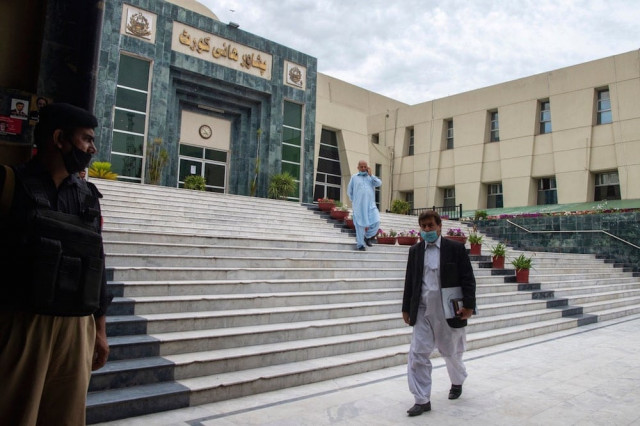The Superior Court of Peshawar has withdrawn the provisional relief granted to the leaders of Pakistan Tehreek-E-Insaf, including Omar Ayub, Shibli Faraz and Abdul Latif in their cases of disqualification. The court declared that no fugitive can claim constitutional rights until they surrender to the competent courts.
In a detailed verdict of 31 pages, written by Judge Syed Arshad Ali and announced by a bank of two members comprised of Judge Syed Arshad Ali and Judge Faheem Wali, the court categorically argued that the persons convicted by the courts of first instance cannot avoid the legal process and seek the relief directly from the Superior Court.
The requests had challenged disqualification notifications issued against the three PTI leaders after their convictions by the Anti -Terrorist Courts (ATC). Omar Ayub and Shibli Faraz were sentenced on July 31 by the ATC in Faisalabad, while Abdul Latif was sentenced in May by an ATC in Islamabad.
During the hearings, the tips of the petitioners, the lawyer Gohar Khan, who represents Ayub and Faraz, and the defender of Moazzam Butt, who represents Latif, argued that his clients were not fugitive, as they had appeared before the relevant forums in the previous procedures.
They argued that under constitutional and international principles, their clients were entitled to fundamental rights, including the right to appeal.
Read more: ECP disqualifies Shibli Faraz, Omar Ayub
The lawyer Gohar also argued that depriving the petitioners of his constitutional protections amounted to denying access to citizens to justice. He stressed that PTI leaders were present before PHC and, therefore, could not be considered fugitive in the strict sense of the law.
On the other hand, lawyer Swati insisted that the petitioners were fugitive, since they had not surrendered to the courts of first instance after their convictions. He argued that omitting the appeal procedure and directly approaching the PHC made its requests not maintainable.
The representatives of the federal government, the general additional lawyers AAMIR Rehman and Sanullah, echoed this position, stating that the requests were not admissible unless the petitioners surrender. Citing national and international jurisprudence, the court stressed that fugitives cannot receive relief by the superior courts.
The court emphasized that the constitutional courts cannot be reduced to forums to avoid established judicial hierarchies. He decided that until the petitioners surrender to the courts of first instance and present appeals through the prescribed procedure, their requests before the PHC remains ineffective.
Consequently, the Bank withdrew the orders of interim stay issued on August 1, 6 and 12, and postponed the matter indefinitely, granting the petitioners the option to relive their cases once they surrender and comply with due process.
The ruling offers a significant legal blow to PTI leadership, since three of its prominent figures remain disqualified. It also establishes remarkable precedence, reaffirming that constitutional protections cannot be invoked as a shield by those considered fugitive until they respect the judicial process.
In August, the Pakistan Electoral Commission disqualified nine legislators affiliated with PTI, including Faraz and Ayub. Other disqualified include the head of the Sunita Ittehad Sahibzada Hamid Raza, Sartaj Gul and Junaid Afzal Sahi.
The ECP also disqualified Rai Hassan Nawaz, Rai Murtaza Iqbal, Rai Haider Ali and Ansar Iqbal. A notification issued by the Commission confirmed its disqualification and declared its vacancies.
Of separation, an ATC in Faisalabad sentenced several leaders of the main PTI to up to 10 years in prison in cases linked to the incident of May 9, including Ayub, Faraz, Gul, race and former Sheikh Rashid Shafiq, among 108 leaders found with guilt of 185 involved, while another 77 were accepted.
May 9 disturbances
May 9 disturbances burst throughout the country after the arrest of former Prime Minister Imran Khan, after which PTI leaders and workers organized protests aimed at civil and military facilities, including Jinnah House and GHQ in Rawalpindi.
The military condemned events as a “black day” and decided to try the protesters under the Army Law.
As a result of the riots, many PTI members were arrested and tried in military courts. In December, a military court condemned 25 people, including Imran Khan’s nephew, Hassan Khan Niazi, and then sentenced to another 60.
In January, 19 convicts had their forgiven sentences after successful appeals of mercy, although PTI expressed dissatisfaction with the limited number of pardons.
Initially, the military trials had stopped after a ruling of the Supreme Court, but resumed after the court instructions to finish pending cases and announce judgments for those involved in violent incidents.




